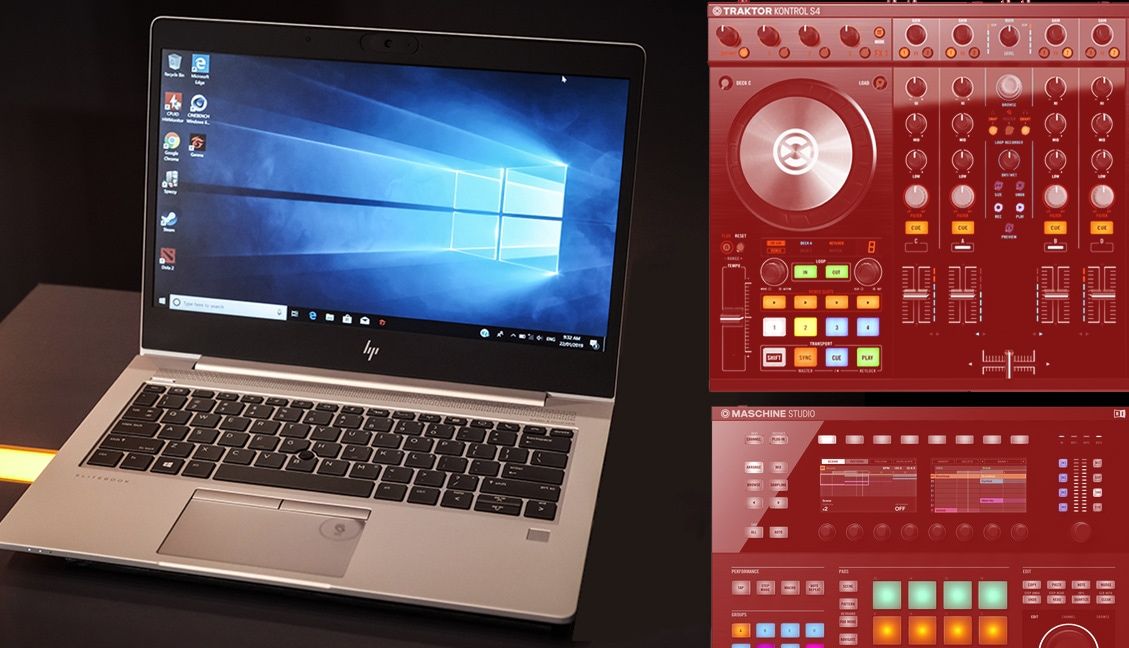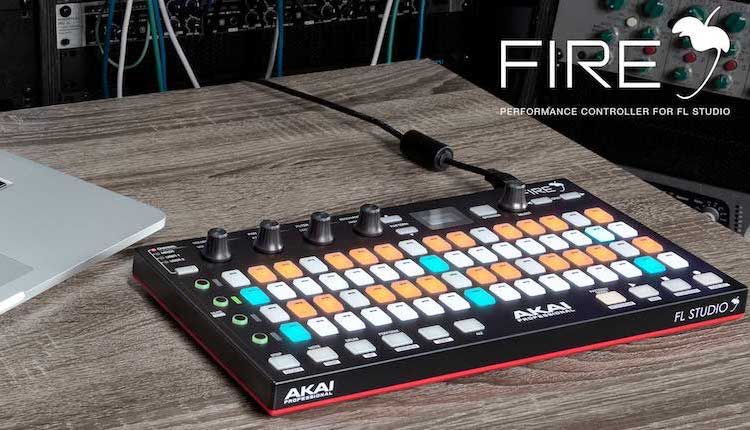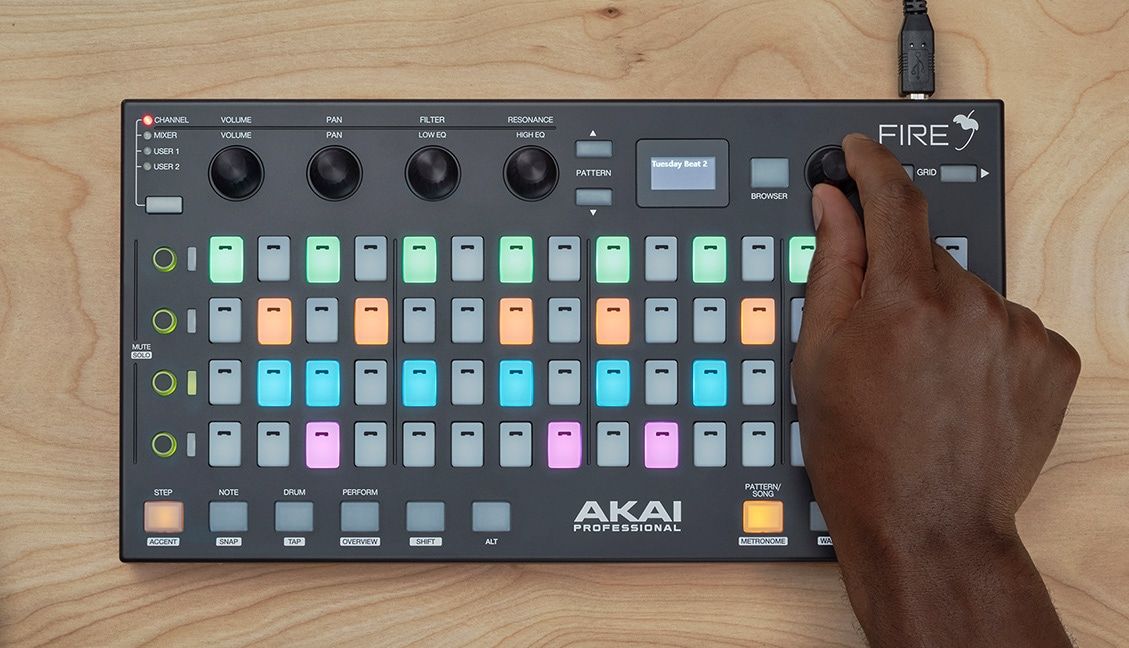As the technological landscape of dance-music production continues to evolve, producers are faced with a conundrum: With a plethora of production platforms, hardware/software bundles, plugins, and modular pieces of software, what is the best way to sequence drums?
Of course, there isn’t a best way, per se—like with any craft, it is all about personal preference. However, this piece serves to show what various producers of all different levels use to program their beats, and create grooves and complex rhythms to captivate ears and dance floors.
STRANGE FRUIT
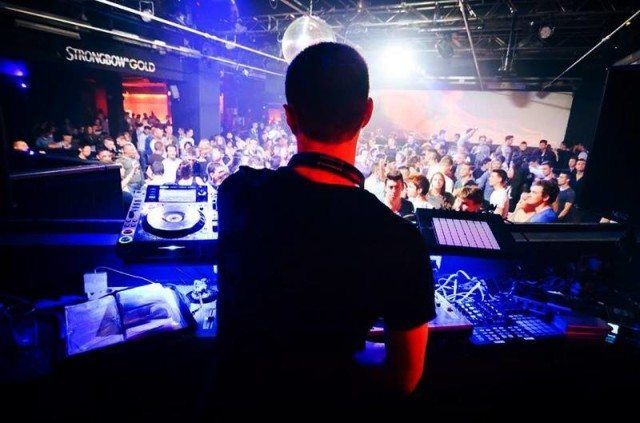
The options for drum sequencing are many, but naturally certain tools are used more often than others. Ableton Live and its internal components seem to be the pick of the litter among many producers; however, some artists opt for Apple’s Logic Pro, and even a few still use what most would regard as an entry-level sequencer: FL Studio (formerly known as FruityLoops).
Italian techno producers Paride Saraceni and Dema fit into the latter group. They’ve been using FL Studio for the bulk of their productions for years (for labels like Dubfire’s Sci+Tec and Mark Knight’s Toolroom), and aren’t swayed by platforms regarded as the “industry standard.”
“I principally use FL Studio on my laptop, and sometimes Logic on my MacBook,” says Dema.
“I started working with FL Studio 10 years ago, and find it’s the best sequencer for me. In more recent years, I have also used Logic, as I have found a better collection of samples and plugins, however, it is a bit more difficult to use.”
Paride Saraceni, with whom Dema has often collaborated, uses FL as well. “Many people regard it as a toy, but I find it brilliant!” he says. “Differently from Live, I have the impression of FL being slightly clean-sounding—this might be my own perception—but most of all, I love some of its internal presets such as XD10, or DrumSynth Live, as well as the Sytrus. I always manage to generate new and very 3D-sounding synths, soundscapes, or sounds of any sort. Brilliant. No wonder after five years I’m still using it.”
However, Saraceni concedes that he uses Live for most of his sequencing as it is “incredibly versatile, compact, and quick to understand the way it functions.” He notes though, that his setup has changed very little in his evolution as a producer, despite his rising success over the years, with releases on massive labels like 1605, Toolroom, and Octopus.
WILLING AND ABLE
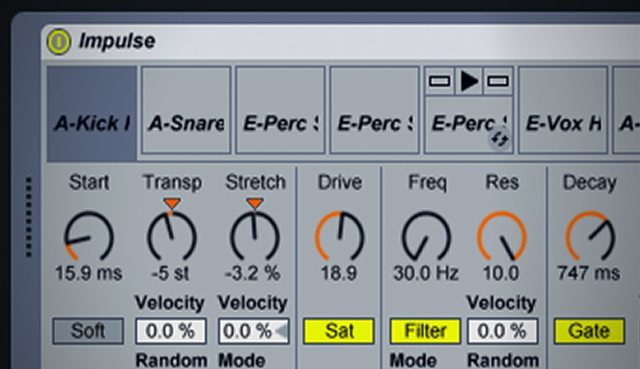
Tony Grund is a teacher at Dubspot NYC and also a producer of downtempo and electronica, who uses Ableton Live as his DAW and the hardware/software bundle Native Instruments’ Maschine. “[I use] Ableton Live because it is easy to combine rhythms from multiple sources, and Maschine because it is easy to create original beats and keep the creativity flowing,” he says. Like many producers, Grund uses a variety of external plugins like Izotope and Waves. Ableton’s internal presets, IK Multimedia, and Sugar Bytes (for wackier effects) are also in his arsenal.
“I like the speed at which Ableton Live allows me to work. There is very little gap between the conception of the creative idea and the creation of the idea. It is more of a production instrument than a production platform, meaning that production with Ableton Live feels like I’m playing an instrument,” Grund continues.
Another champion of Ableton’s capability is New York-based producer Leon Blaq, who’s recorded for DinoTech, Dancelab, and Nervous Records in the past. He uses Ableton and Impulse for programming drum sounds. “Once in a while I might use Battery or Nerve,” he says. “However, Ableton has gotten so advanced that I rarely leave the built-in sequencer these days.”
This seems to be Ableton’s end-game, as many of their recent revamps of the platform, namely versions 8 and 9, have boasted more and more internal components, negating the need to use external plugins and slaving other software to program strings and drums and to sample.
GO HARD
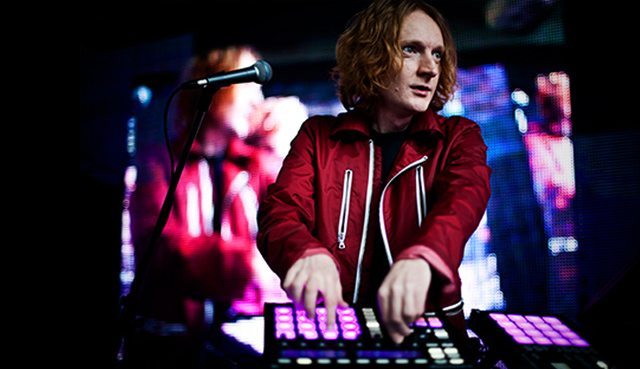
When it comes to the hardware/software combo, as with Maschine or Ableton Live and its Push controller, Grund says, “I feel anything that is inspiring and helps creativity is great.” Both Maschine and Push essentially play like an MPC (Akai’s standard-setting Music Production Center), complete with drum pads and an LCD readout that communicates with its software component, allowing users to create drum beats and even basic synth and basslines without ever touching a mouse. This type of continuity in digital music production was somewhat lacking up until now, and it reintroduces the importance of tactility in music creation—less mousing around and more just banging out a beat.
Regarding automation, like everything else in the world of music, opinions are varied. Dema, Paride Saraceni, and Leon Blaq all say that much of their work is highly automated, with multiple plugins being run simultaneously, constantly tweaking the sound to give a track more movement, changing the pitch on drums, introducing reverb then killing it to get a more dynamic sound, etc. Grund, however, likes to manipulate his plugins in real time and clean them up later, rarely relying on the multiple-envelope capability in Maschine and Ableton Live.
LOST IN THE SHUFFLE
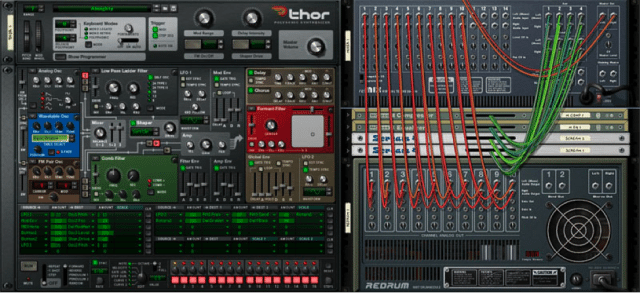
While Propellerhead’s Reason was once a go-to sequencer for many, it’s seemingly fallen by the wayside when it comes to what most producers are using these days. “I have tried Reason once, but I got put off by the complexity of its interface,” says Saraceni. “I have also worked on Logic in the past and I admired a lot the precision of its sound, the synths, but it was also not too practical compared to Live for me.” But, like I’ve been saying, if it works for you, use it—it all comes down to personal preference, and every DAW out there has its merits, depending on your needs.
Now I know what you’re thinking: How could FL Studio, which retails for a few hundred bucks, be more widely accepted than its more complex brethren, Reason? Well, the answer is simple: its complexity. I worked for Guitar Center as the head of Pro Audio while in college, and I would have a ridiculous amount of conversations with people coming in and out—ranging from weekend producers to guys that bought more Mogami cables in a week than I would ever buy in my life; guys with million-dollar studios. Everyone, save for the guys like myself that were pretty familiar with rack gear, found Reason to be too complex and clunky and not at all user-friendly. The “toy” that FL Studio is joked to be in many circles—well, more people used it for no other reason than its lack of complexity.
The lesson from this anecdote: Even though we deal with complex sine waves, LFOs, HPFs and all kinds of abbreviations, sometimes the best solution is to keep it simple.
DECISIONS, DECISIONS…
Deciding which drum-sequencing option is best for you essentially boils down to a few basic points:
If you are a more tactile type of person—perhaps a traditional musician who is used to manipulating some form of hardware, or even someone who learned how to use MPCs and other Akai-style hardware—something like Maschine or Ableton with a Push controller might suit you best. No more setting macros and MIDI-mapping to get things to respond to your hardware; you can pound out a beat, edit, sample, record, overdub, add effects—basically, do everything you need to do to lay down a groove without ever touching your mouse. Maschine even comes in two models (Studio and Mikro) as well as having screens on the unit itself to tweak a sample. Maschine has its own built-in interface, where you can easily lay down a groove and then bounce down different segments and arrange it in the DAW of your choosing. Push, as well, is designed to create a seamless and integrated setting to bang out a drumline, with the ability to get more accurate than Maschine when it comes to quantizing or slightly offsetting a MIDI beat to get a groove to sound less robotic.
And—bonus—Maschine (and Push to a degree) looks pretty damn cool, with colored lights on the pads, pressure sensitivity, and both native and mappable controls. You can easily jump between different groups—which is stellar if you’re creating layered beats like kick only, hats, and snares, etc., as well as tweak the arrangement view—all from an interactive piece of hardware. Even copy/paste (duplicate) is a cinch. This approach seems much more interactive and at times more fun than clickety-click-clicking to create a beat. And yes, you can also use Maschine with Ableton Live pretty seamlessly as a plugin (admittedly, the stock effects on Maschine are okay, but not great). Also, you can easily search and sort samples—some things other platforms lack, and which Ableton only implemented in its latest release of version 9.
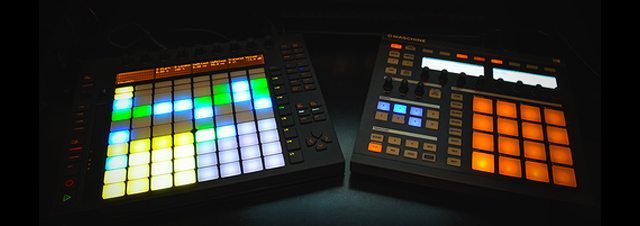
In my humble opinion, Ableton Push has a bit of an edge over Maschine in the fact that you can lay down more than drums, with the pads capable of being put in diatonic and chromatic mode: simply put, pads will light up if they are in the song’s key when in Note mode (see image below)—pretty cool if you’re tone deaf or hitting a dead end on where to go with a melody. Since it’s designed to work with Live, it syncs and seamlessly works with your library, and even can be used as a keyboard. If you’re new to keys, this might be a great option for you. (If you’ve paid your “MIDI dues,” well, then you can stick with your 25, 49, or full-size keyboard.)
Both Maschine and Push are pretty solid if you want to code drums and don’t want to touch a mouse, and both have strengths and faults—so again, it comes down to what works for you.
If you are very comfortable with a DAW and have no problem using only software to create a groove, then Ableton’s drum rack, Impulse, should meet your needs. With the ability to clip, filter, and manipulate a sample in arrangement view (or just drag and drop regular samples from a sample bank) you can easily create a cohesive groove without too much clicking around. Yes, you still have to map it out in piano roll, but it has gotten much more user-friendly in the latest version of Live 9.
Logic has its champions, but most of the people I’ve spoken to on and off the record seem to find it a little too complex for their needs, and Ableton definitely has a much more user-friendly workflow. Reason, however, is less frequently used these days, particularly by novice producers. It’s the most realistic version of an actual rack unit—just hit the tab key and start plugging and unplugging cables and you’ll see my point—so it might look pretty intimidating if you’ve never worked with outboard gear.
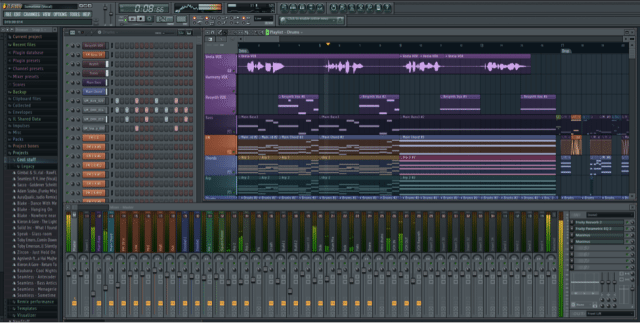
By far, the most surprising for me is the community support for FL Studio. While it seems like a pretty entry-level sequencer, the more people I spoke to in depth about it—especially Dema and Saraceni—made me realize that it’s really a matter of preference. Any tool in your arsenal can be outstanding if you know how to use it, and FL Studio is no different.
On a personal note, I think Ableton and Maschine coupled together is the end-all-be-all of drum-creation platforms (or Franken-platforms, since you have a hardware-software bundle working in sync). Not many platforms allow you to create a beat without ever touching a mouse, and Ableton’s user-friendly platform and abundance of internal plugins is pretty impressive. Of course, Waves and Effectrix and other VSTs will only bolster that sublime combination.
Essentially, what producers need to do is find a DAW, learn it, and stick with it. At this point in the game, they are all capable of doing more or less the same thing, so now it’s just a matter of playing around—using plugins, playing with automation, tweaking your kick and snare until you have a solid groove—and making music.
What’s your go-to drum sequencer? Tell us about it in the comments below.



